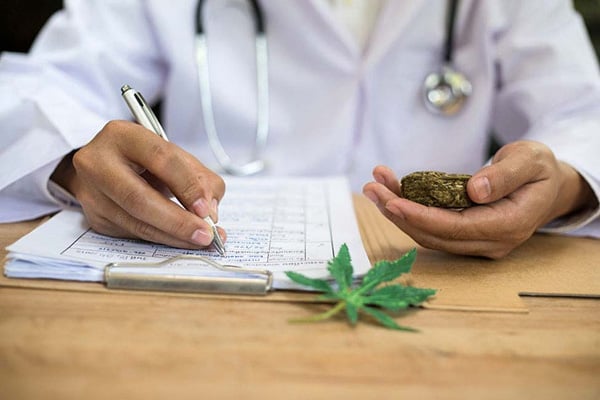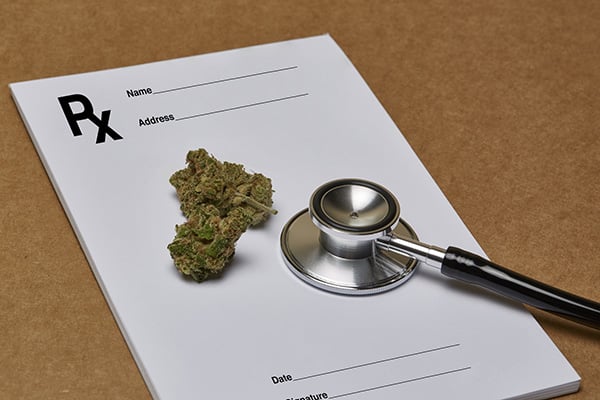Conditions That Qualify for a Medical Marijuana

Medical Conditions That Qualify for a Medical Marijuana Prescription

Medical marijuana is legal in dozens of states, and many people find themselves wondering what qualifies for a medical marijuana prescription. Before making a doctor's appointment, read which the patient's needs and conditions qualify for the medical cannabis, along with a few other noteworthy facts.
Medical marijuana may be a controversial topic for some, but the benefits of the plant can no longer be denied. In fact, 32 US states and four territories have legalized the use and distribution of medical marijuana. Most states do not allow marijuana in public places or possession in correctional facilities, but in the United States, more and more patients have access to medical marijuana.
Three things you need

Anyone seeking a prescription for medical marijuana for any qualifying condition needs three things, no matter what state they live in.
1. Proof of residency: Patients need to provide proof that they are residents of a medical marijuana state.
2. Eligibility: Eligibility for medical marijuana varies from state to state.
3. Documentation from the doctor: The patient will be required to obtain a prescription from at least one medical professional.
4. In many states, you will then need to register for and pay for a medical marijuana card. The price of these cards varies across the US, and people on Medicaid, PACE, CHIP, SNAP, and other assistance programs may be eligible for reductions.
Once you have all these, you can get marijuana at a state-run marijuana dispensary. In some states, this can allow you to grow your own plants.
Now let's take a look at what qualifies you for a medical marijuana prescription?
Qualifications
The big question for most people right now is which medical conditions actually qualify for a medical marijuana prescription. Eligibility for a medical marijuana prescription depends largely on the state you live in.
The most common conditions, those considered eligible in most medical marijuana states, include:
- The excitement associated with Alzheimer's disease
- Amyotrophic lateral sclerosis (ALS), is also called Lou Gehrig's disease.
- Arnold Chiari Malformation
- Autism
- Cancer
- Burning pain
- Cachexia
- Certain migraines
- Chronic inflammatory demyelinating polyneuropathy
- Decompensated cirrhosis
- Seizures, seizures, or persistent muscle spasms
- Fibromyalgia
- Dystonia
- Glaucoma
- Hepatitis C
- HIV AIDS
- Huntington's disease
- Hydrocephalus
- Inclusion body myositis (IBM)
- Inflammatory bowel disease (IBD)
- Interstitial cystitis
- Lupus
- Muscular dystrophy
- Multiple sclerosis
- Myoclonus
- Myasthenia gravis
- Patellar syndrome
- Neurofibromatosis
- Ulcerative colitis
- Obstructive sleep apnea
- Parkinson's disease
- Peripheral neuropathy
- Post-traumatic stress disorder and its symptoms
- Reflex sympathetic dystrophy (RSD)
- Residual limb pain
- Rheumatoid arthritis
- Severe pain
- Severe nausea
- Sickle cell anemia
- Therapy of opioid addiction
- Spinal cord injury results in intractable spasms
- Spinocerebellar ataxia (SCA)
- Sjogren's syndrome
- Terminally ill
- Traumatic brain injury (TBI)
- Tourette's syndrome
That's a long list of conditions that make patients eligible to obtain medical marijuana in states that have legalized it.
However, not all of them apply to all states. Some states leave room for doctors to make that decision. Your medical practitioner may recommend trying medical marijuana if you have chronic symptoms that affect your quality of life, such as preventing you from doing routine day-to-day activities or that threaten your long-term mental pr physical health.
In New York, medical marijuana may be prescribed instead of opioids.
There are tools online that can help you determine if you're eligible for a medical marijuana prescription, depending on the state you currently live in.
The best way to determine if you're eligible for medical marijuana is to visit your state's website. As we mentioned earlier, qualifications sometimes vary from state to state, so it's important to verify the specific qualifications of your state.
Other things to know
What else do you need to know before contacting your doctor about a medical marijuana prescription? If you do have a qualifying condition, there are a few more questions to ask, including
What types of medical marijuana are available? Does your state allow the use of hash oil, edibles, the dry marijuana plant, or concentrate? Some states only allow low THC oils for medical marijuana treatment, so it's important to know what drugs are available in your state.
Where can I buy medical marijuana? Medical marijuana will be offered primarily in state-licensed dispensaries, which will be located throughout the state. Just like eligibility, dispensary locations vary by state, so it's important to check with your state's medical marijuana office.
Does your current doctor support the use of medical marijuana? Marijuana use is a hot topic for many people, and not all medical professionals support the use of the substance, whether legal or not. If your doctor does not support the use of medical marijuana, it may be time to switch to a medical practitioner that offers the support you need.
Does your state also offer recreational marijuana? If so, a prescription for medical marijuana may exempt you from some of the taxes levied on marijuana sales for recreational use. Colorado is a prime example. While medical marijuana sales do fall under the 2.9 percent state sales tax, it is exempt from the state's 10 percent marijuana sales tax.
As activists continue to push for wider acceptance of medical marijuana, there will be more and more legalization and decriminalization bills on the ballot, which means more people will become eligible for medical marijuana in their state.
The information gathered here is a good starting point, but if you have further questions we haven't covered, the best thing you can do is contact the department in your state that deals with marijuana regulation and sales to get the most up-to-date state-specific answers.





